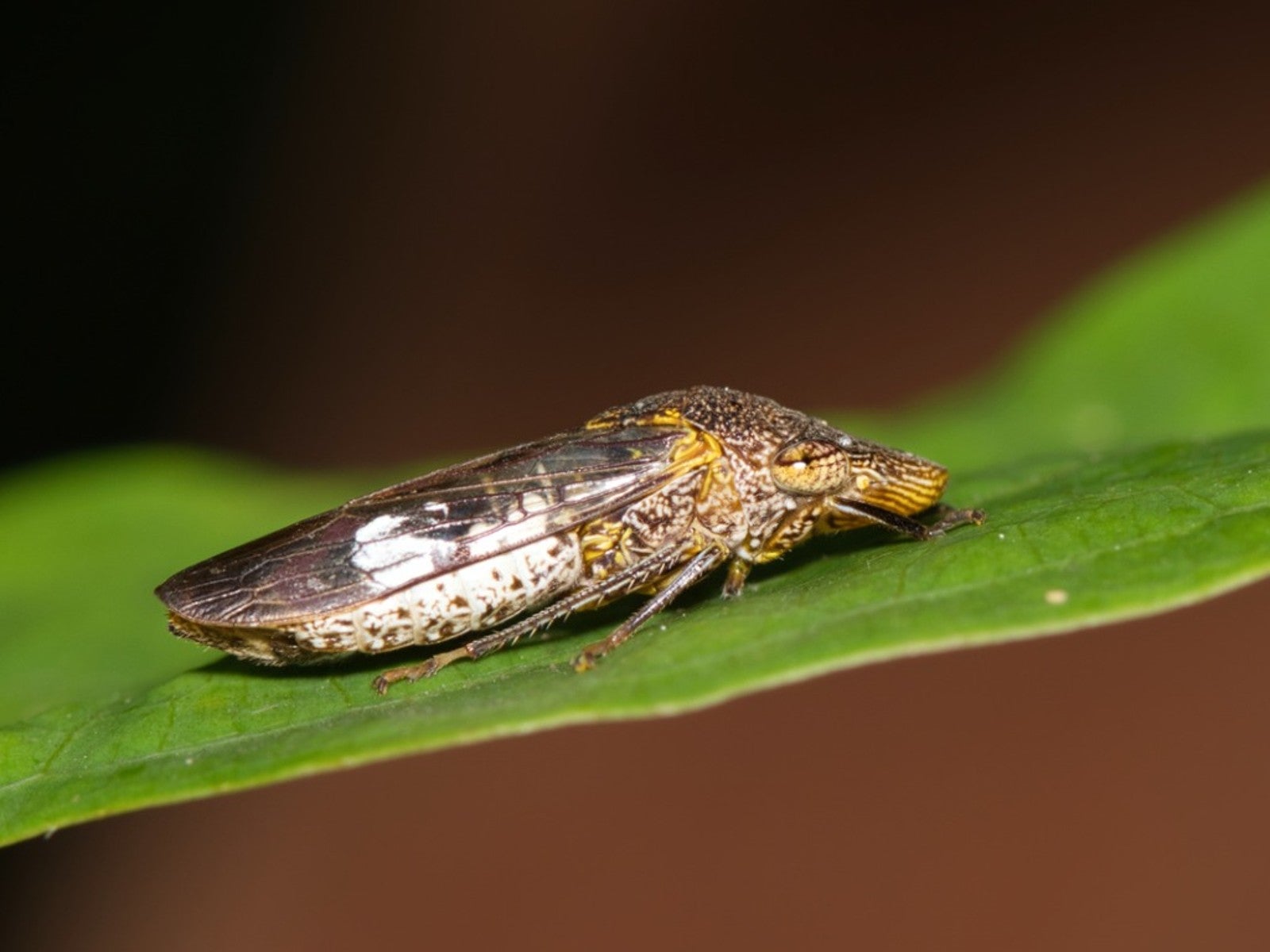What Is A Glassy Winged Sharpshooter: Learn About Sharpshooter Damage And Control


Sign up for the Gardening Know How newsletter today and receive a free copy of our e-book "How to Grow Delicious Tomatoes".
You are now subscribed
Your newsletter sign-up was successful
What is a glassy winged sharpshooter (Homalodisca vitripennis)? This harmful pest, native to the southeastern United States and Mexico, is a type of large leafhopper that feeds on fluids in the tissues of various plants. Although the pests rarely cause immediate damage, they excrete copious amounts of sticky liquid that hardens on fruit, and also gives the foliage a pale, whitewashed appearance. Additionally, the drippy stuff is a big problem when it sticks to cars parked below infested trees. Read on to learn about managing glassy winged sharpshooters and tips on how to prevent the transmission of dangerous plant diseases.
Sharpshooter Pests in Gardens
Sharpshooter pests in gardens are a real problem for fruit trees and a wide range of plants, including:
Other than the nasty liquid mentioned above, sharpshooter damage consists primarily of transmission of Xylella fastidiosa, a bacterium that causes potentially deadly plant diseases, including several types of leaf scorch and Pierce’s disease of grapes. When a pest feeds on an affected plant, the bacterium multiplies in the pest’s mouth and is transferred when the sharpshooter moves on to feed on a different plant.
Preventing the spread of dangerous plant diseases is the reason why careful control of sharpshooter pests in gardens is so critical.
Sharpshooter Insect Control
There are a few options for managing glassy winged sharpshooter insects in the garden.
A healthy population of beneficial insects is the single most effective way to control sharpshooters. One of the most effective is a small wasp that feeds on the pest’s egg masses. Praying mantis, assassin bugs, and lacewings are also extremely beneficial at managing glassy winged sharpshooters.
Avoid chemicals as long as possible because pesticides can decimate populations of beneficial insects, which means sharpshooters and other pests are free to multiply like crazy. Additionally, pesticides haven’t been proven to be very effective when it comes to controlling the spread of bacteria, and in time, pests can build up immunity and control becomes much more difficult.
Sign up for the Gardening Know How newsletter today and receive a free copy of our e-book "How to Grow Delicious Tomatoes".
If you feel pesticides are necessary, talk to your local cooperative extension office to determine which products are more effective – and least harmful to beneficial insects.
Insecticidal soaps and horticultural oils don’t kill the eggs, but they will kill the nymphs and prevent the production of sticky excrement. However, the substance must come in contact with the pests in order to be effective. Thorough coverage of foliage is necessary and repeat application is required every seven to ten days.

A Credentialed Garden Writer, Mary H. Dyer was with Gardening Know How in the very beginning, publishing articles as early as 2007.